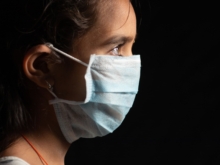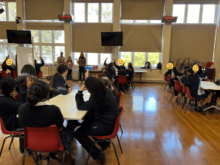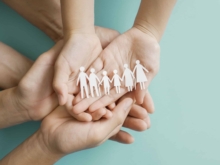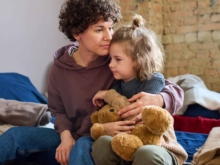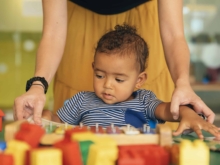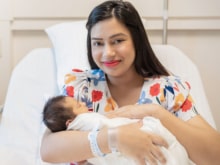Early Life Determinants of Health
In Australia, 20% of children start school without the developmental capabilities to thrive. This number increases to 40% in children from disadvantaged backgrounds. These children do not get the opportunity to reach their full potential in terms of education, employment, health, social and societal participation and results in significant lost productivity and costs due to adverse health and wellbeing outcomes.
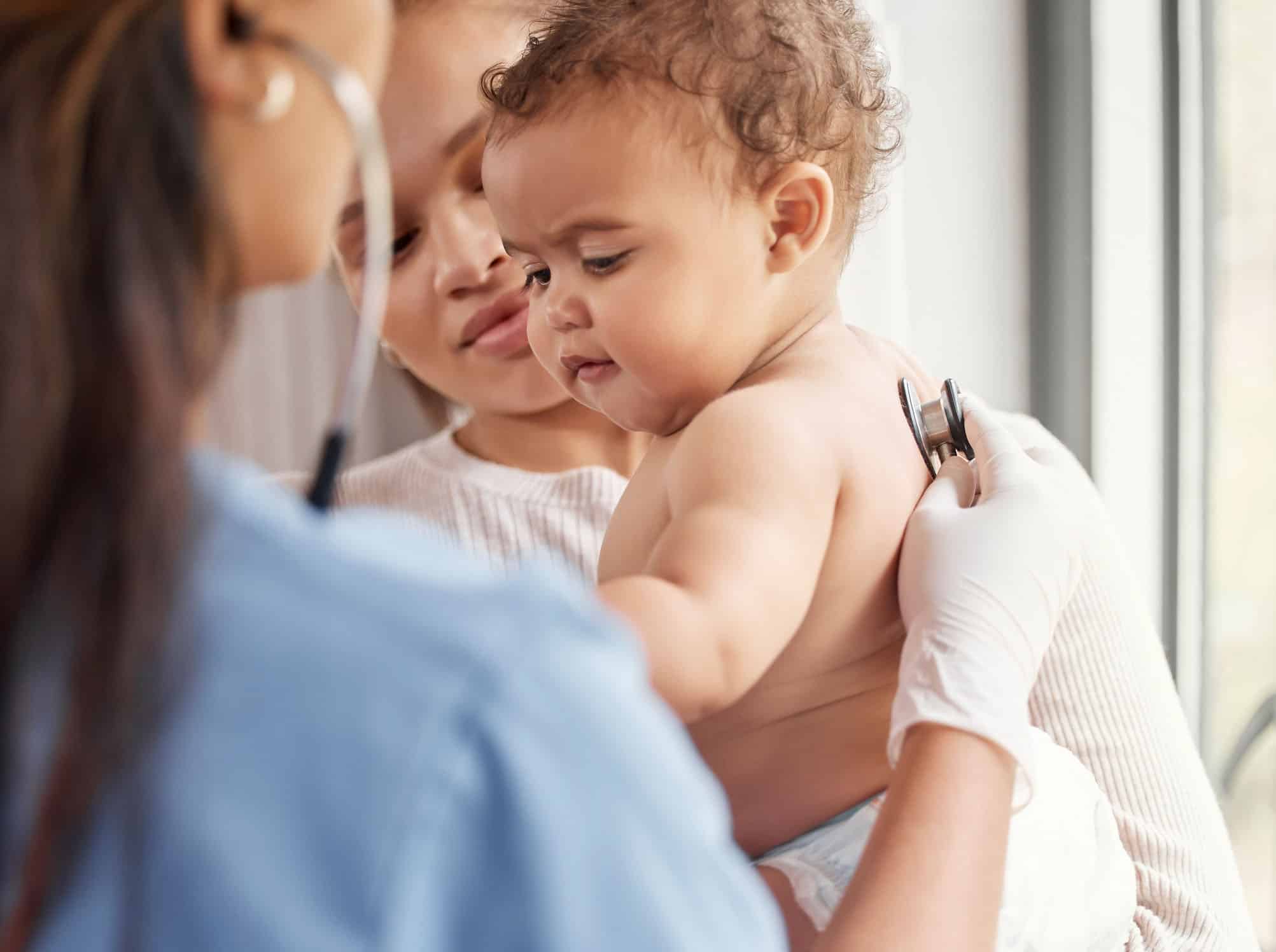
The earlier we can identify developmental delays, the earlier we can intervene. The Early Life Determinants Clinical Theme focuses on the modifiable determinants of health outcomes from pre-conception to the cusp of adulthood and in particular those critical, first 2000 days of a child’s life from pregnancy to the start of school. Together, we’re driving research that will transform the lives of children and the adults they will become.
Our Vision

Our Vision
To engage and embed research findings about modifiable early life determinants in practice and policy settings that improve equity and value.
Our Focus
Our Focus
One in five children starting school are developmentally vulnerable. Genetic, epigenetic and environmental risk factors at the start of life can lead to a series of developmental setbacks while positive childhood experiences and building family connections and resilient communities can enhance a child’s health and wellbeing throughout life.
Recent data shows that children have better outcomes in life when they begin early intervention programs as infants or toddlers. This also breaks the cycle of intergenerational disadvantage. That’s why we need to take a life course approach to early childhood development, starting from conception. We must look at each stage of a child’s development and ensure it builds on the next.
Through our work, we will improve policy and practice to ensure every child has the best start to life.
All our activities are centred on getting wider access to vulnerable communities, and ensuring all families get equal access to the same level of support.
-
Access
We have four programs that help us identify children in need of support as early as possible and provide them interventions and supports at the right place and time. The first is our Watch Me Grow weblink – a digital screening and ongoing monitoring program to identify and support children’s developmental needs (expanded also include parental mental health and family psychosocial needs) using opportunistic contacts such as vaccination visits or routine contacts with GPs, Child and Family Health Nurse clinics, supported playgroups and early childhood education centres, NGOs and other social service providers etc. Once identified, our tiered care ‘STARS for Kids’ (Strengths-based Tiered Access to Resources and Supports) program aims to match interventions and supports based on needs and family preferences. The third, the First 2000 Days Care Connect (FDCC) program comprising child and family health hubs are place-based multi-agency programs serving as a ‘one-stop-shop’ to integrate health with social care. These programs are aimed to reach all children regardless of their cultural, linguistic, socio-economic or geographic backgrounds and provide a seamless care pathway to support their needs. The fourth is our NHMRC Centre of Research Excellence (CRE) in supporting child and family health in priority populations, that is focusing on four key areas to empower parents to access timely and appropriate care, with a specific emphasis on service navigation support when needs are identified, co-designing a strengths-based program for children from priority (culturally and linguistically diverse, Aboriginal, regional and rural, low socioeconomic) background with consumers and the community, as well as implementing and evaluating a tailored tiered care of interventions and supports.
-
Equity
We’re working with refugee families to ensure health and community services communicate better with these groups. We’re also encouraging better engagement with these communities, so that providers can tailor their services to different cultures and support the health of refugee children. Through this work, we’ve worked with refugee children (and their parents) attending four schools in south-west Sydney to understand the factors determining the ‘sense of belonging’ and the mental, community and emotional trauma of trying to fit into a new culture. We’re using these findings to improve care and early intervention programs and has provided evidence for Education Department’s initiative to use school liaison officers as cultural brokers.
-
Clinical variability
Through SuCCEED (Supporting Children with Complex Feeding Difficulties), we’re reducing the variations in care that children with complex feeding issues receive through feeding tubes. Since the project’s launch, we’ve connected clinicians, researchers, parents and educators. We’ve progressed towards standardised, enhanced care in feeding clinics across the state. We’ve used novel research methods such as Video Reflexive Ethnography to identify what makes for “brilliant” care through the eyes of families and clinicians. We are creating new communities of practice and investigating the impact that simply connecting people can have on the most complex health issues. We have co-created the first ever Australian website by parents, for parents and families of children with complex feeding difficulties – childfeeding.org. This free website provides information and support to families any time of the day or night, exactly when and where they need it most. This free website provides information and support to families any time of the day or night, exactly when and where they need it most.
-
Healthy Housing Project
This project is committed to improving Aboriginal child health and wellbeing. Through it, we are developing an integrated care pathway that connects families, child health, social and housing services. The pathway will include a brief housing screening assessment and decision tree, with actions including referral to appropriate agency contact points for particular housing issues and provision of supporting information. This project is a unique opportunity for NGOs, clinicians, researchers and distinct government organisations to collaborate to improve the housing situations of Aboriginal and Torres Strait Islander children at risk of poor health due to housing problems.
-
Care Close to Home
This project has been set up to improve the care that children in rural areas receive. In particular, those with complex medical conditions who need to be transferred to a local care facility. This project aims to collaborate with healthcare representatives on a shared model of care and improve communication between health and social care services by increasing the utilisation in rural and remote areas to telehealth services by CNCs (Clinical Nurse Consultants), paediatricians, PHNs and GPs to increase their professional capacity and confidence to deal with complex health needs of their patients.
Our focus
Our Projects
Our Team
Our team includes 162 members from 13 of the 15 partner organisations.
Contact us:
For more information on our work, contact Dr Sophie Gates
Collaborators
Collaborators
We engage front line workers, policy makers and key priority setters from a range of organisations including: the NSW Ministry of Health, NSW Department of Family and Community Services, NSW Refugee Health, NSW Department of Education, Settlement Services International, Migrant Resource Centre and Housing NSW. We have also partnered with several refugee, justice and childhood development organisations across the country and internationally.
Through these engagements, we are listening to what patients, service providers and policy-makers want. These collaborations will ensure we develop integrated services that consider every stage of a child’s development. They will also ensure every family gets better value from early life services across the country

